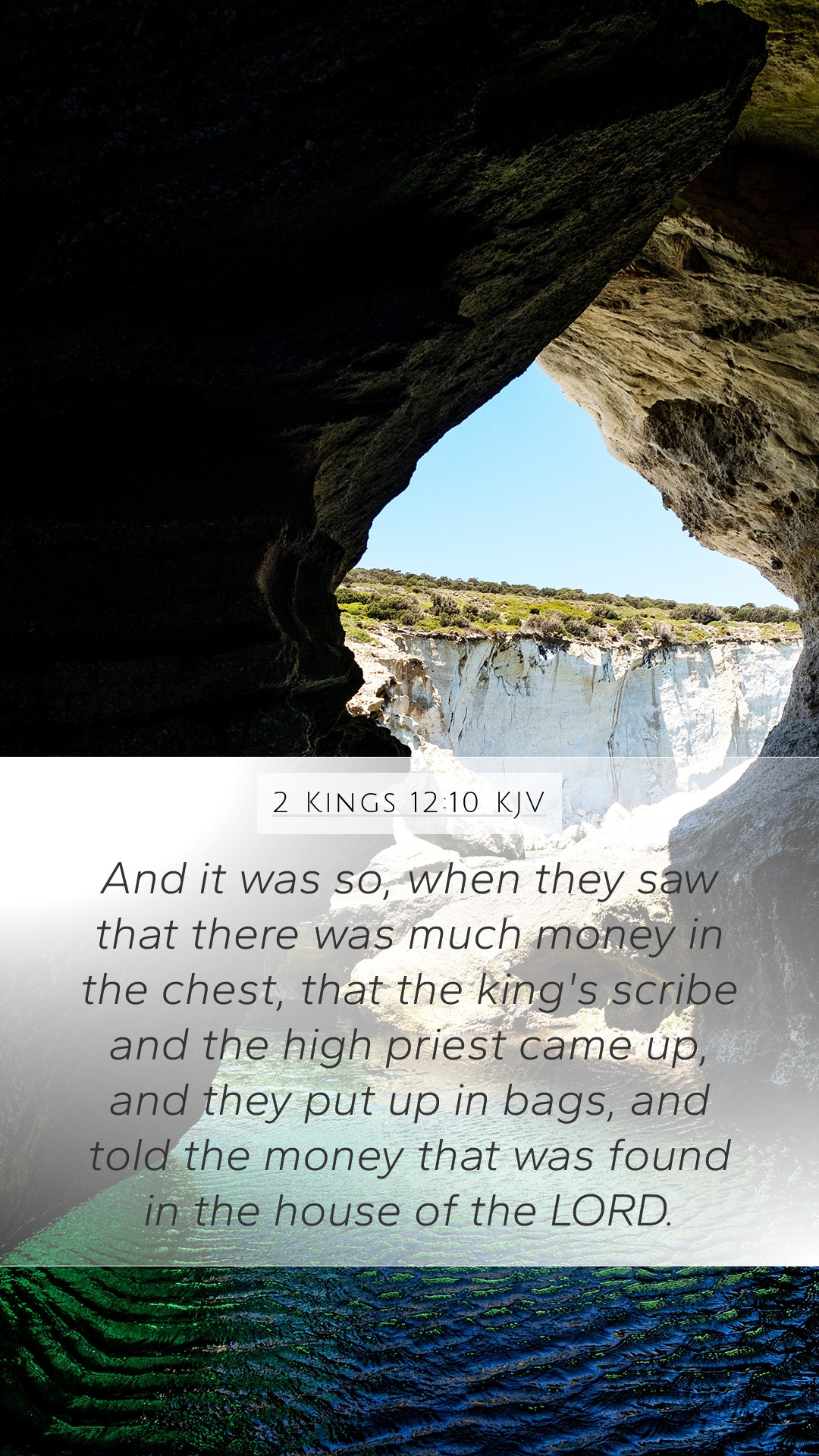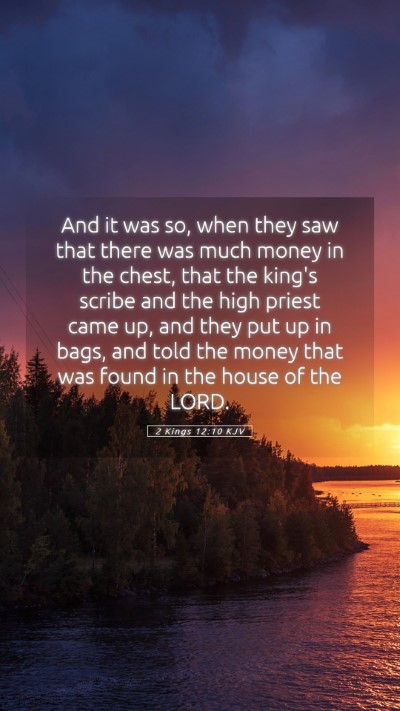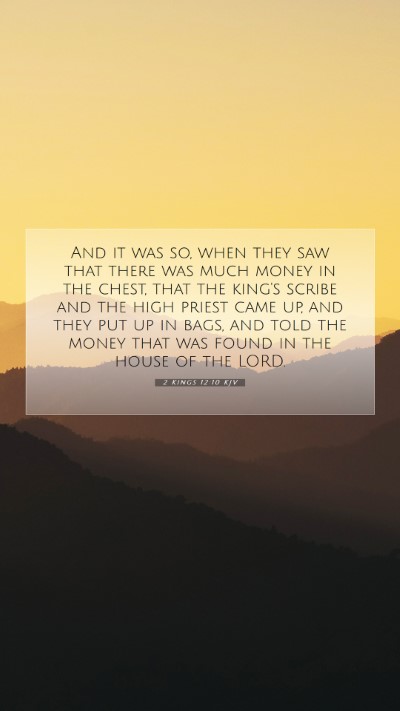Old Testament
Genesis Exodus Leviticus Numbers Deuteronomy Joshua Judges Ruth 1 Samuel 2 Samuel 1 Kings 2 Kings 1 Chronicles 2 Chronicles Ezra Nehemiah Esther Job Psalms Proverbs Ecclesiastes Song of Solomon Isaiah Jeremiah Lamentations Ezekiel Daniel Hosea Joel Amos Obadiah Jonah Micah Nahum Habakkuk Zephaniah Haggai Zechariah Malachi2 Kings 12:10 Meaning
What is the meaning of 2 Kings 12:10?
And it was so, when they saw that there was much money in the chest, that the king's scribe and the high priest came up, and they put up in bags, and told the money that was found in the house of the LORD.
2 Kings 12:10 Bible Verse Meaning
Bible Verse Meaning of 2 Kings 12:10
Verse Context: 2 Kings 12:10 states, "And it was so, when they saw that there was much money in the chest, that the king's scribe and the high priest came up, and they put up in bags and told the money that was found in the house of the LORD." This verse takes place during the reign of King Jehoash, who was dedicated to repairing the temple of the Lord, emphasizing the importance of maintaining and honoring God's house.
Bible Verse Interpretations
This verse illustrates a critical aspect of biblical restoration and stewardship. The collection of money for the repairs of the temple signifies a physical and spiritual renewal. The high priest and the king’s scribe acting together highlights the collaborative effort of leadership in ensuring the worship space is functional and sacred.
Insights from Matthew Henry
According to Matthew Henry, this passage illustrates the transparency needed in the management of resources designated for God's work. Transparency in handling funds reflects a principle of accountability in spiritual leadership. Henry emphasizes the unity between the civil and religious authorities, showing how they work together for a common divine purpose.
Insights from Albert Barnes
Albert Barnes expounds on the significance of the "chest" as a container for offerings, noting that it not only served a practical purpose but also a spiritual one. He suggests that the act of collecting money for temple repairs represents the people's collective responsibility towards God’s house. Barnes emphasizes that such commitments reflect the heart's devotion toward worship and service in the community.
Insights from Adam Clarke
Adam Clarke elaborates on the meticulous process of counting the found money, which reinforces the importance of stewardship and careful management in ministry. He suggests this methodical approach symbolizes respect for what God provides and the necessity for organized efforts in worship. Clarke connects this act to broader themes of reverence and care within the worship practices of Israel.
Understanding Scripture
2 Kings 12:10 provides rich material for understanding the importance of organization, transparency, and collective responsibility in worship settings. This verse also invokes considerations regarding how communities are to approach capital collected for sacred purposes. The interaction between King Jehoash and the high priest exemplifies how leadership must work harmoniously to honor God.
Bible Study Insights
For those involved in Bible study groups or seeking online Bible study resources, this passage opens discussions about:
- The role of leadership in church stewardship
- The importance of collective worship and community involvement
- A practical understanding of the purpose behind financial contributions in faith communities
Application of Bible Verses
Applying the teachings from 2 Kings 12:10 today might involve:
- Evaluating how we support our local churches
- Engaging in the repair and renewal of our community spaces
- Establishing accountability in financial dealings in ministry
Historical Context
The context of 2 Kings 12 shows a national effort towards restoration led by Jehoash, making it significant in understanding the dynamics of ancient Israel’s worship practices and the temple’s role in society. The historical necessity of maintaining the temple reflects a deeper covenantal relationship between God and His people.
Cross References
To gain further insight into this verse, consider these related passages:
- 2 Kings 12:4-9 - Context of the money collection for the temple
- 1 Chronicles 29:3-9 - David's preparation for the temple
- Exodus 25:2 - The call for contributions to God's dwelling place
Conclusion
In summary, 2 Kings 12:10 serves as a vital teaching on the significance of stewardship, communal responsibility, and the importance of maintaining sacred spaces. The collaborative efforts between religious and civil leaders not only reflect a commitment to the physical restoration of the temple but also symbolize the heart of worship that transcends material aspects.


